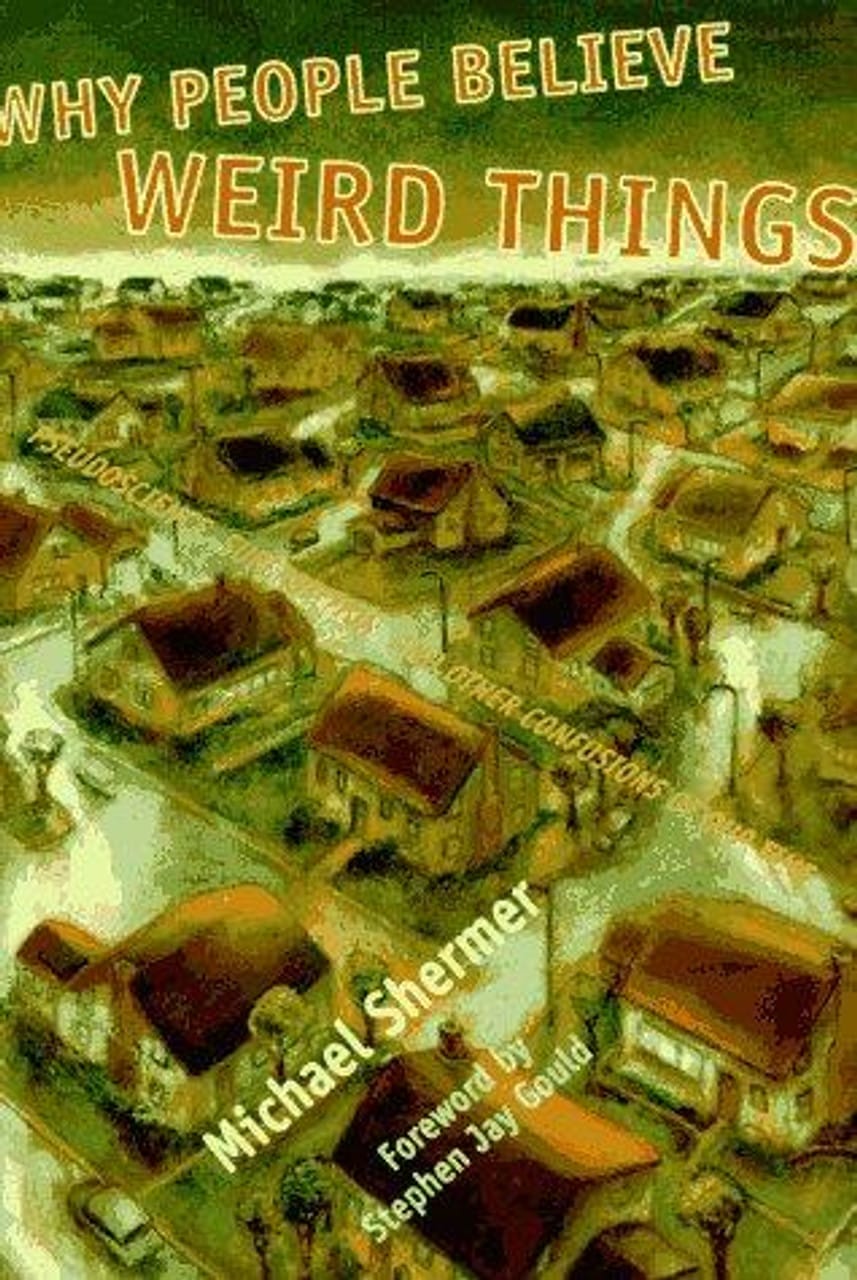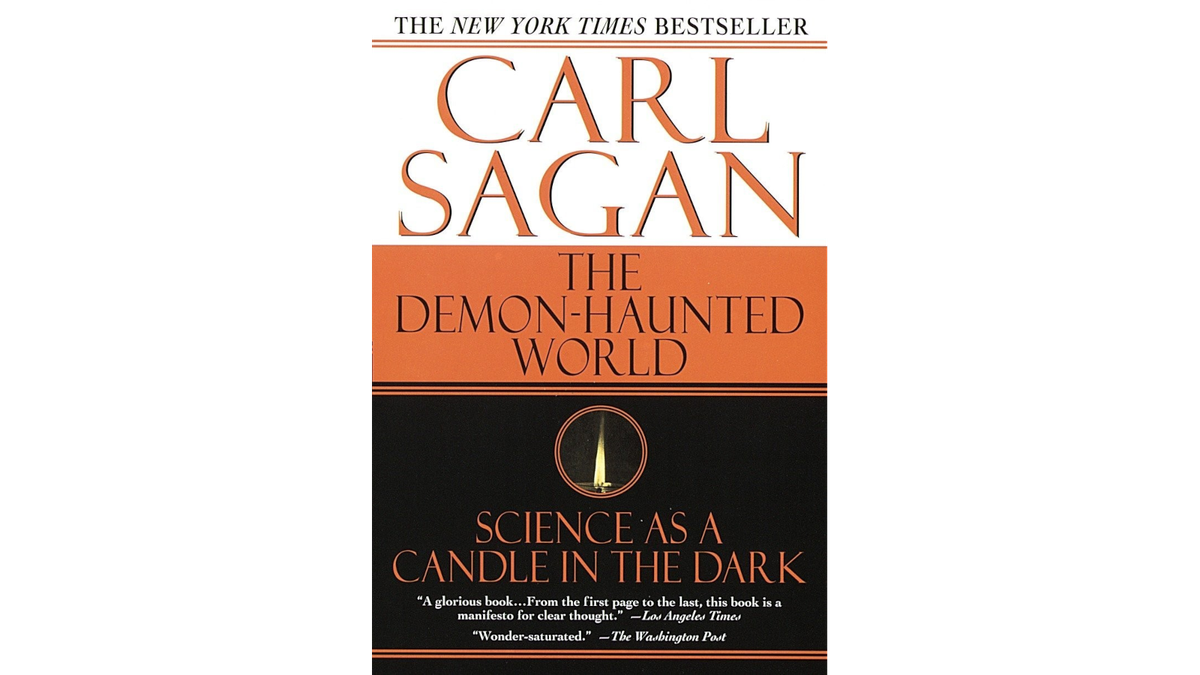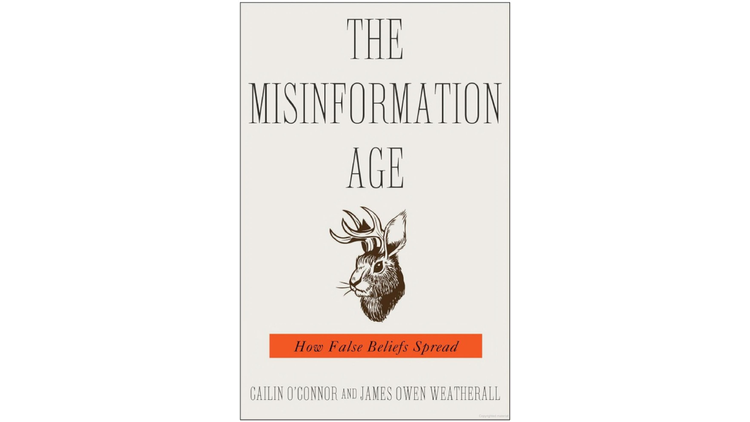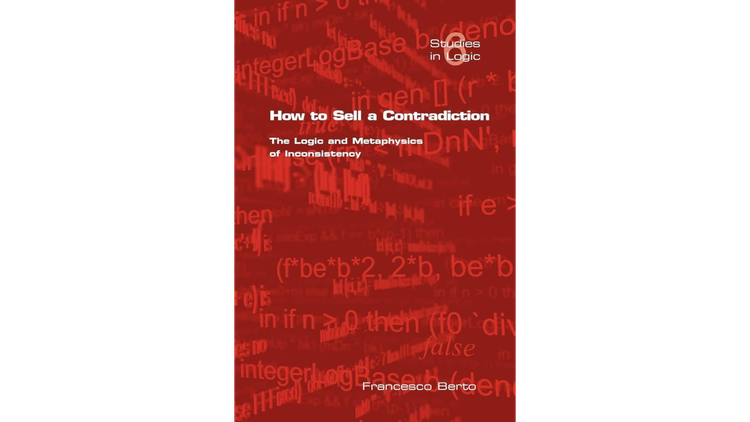讀書筆記︰Why People Believe Weird Things

Why People Believe Weird Things: Pseudoscience, Superstition, and Other Confusions of Our Time
Michael Shermer
呢本喺Skeptic圈子好似都幾出名(Richard Wiseman喺FiveBooks揀Debunking the Paranormal嘅五本書有呢本份),所以買嗰陣連入面有乜都唔知,原本以為係有系統咁講啲人點解信埋啲奇怪嘢,打開先發現係結集。
本書一開頭向Carl Sagan致敬(本書1997年出,Sagan早一年過身),Shermer話佢係聽到Sagan講 The Burden of Skepticism 啟發咗佢,亦quote咗Sagan喺呢場演講入面其中一段(講得好所以都放埋出嚟)︰
“It seems to me what is called for is an exquisite balance between two conflicting needs: the most skeptical scrutiny of all hypotheses that are served up to us and at the same time a great openness to new ideas. If you are only skeptical, then no new ideas make it through to you. You never learn anything new. You become a crotchety old person convinced that nonsense is ruling the world. (There is, of course, much data to support you.)
On the other hand, if you are open to the point of gullibility and have not an ounce of sceptical sense in you, then you cannot distinguish useful ideas from the worthless ones. If all ideas have equal validity then you are lost, because then, it seems to me, no ideas have any validity at all.”
—Carl Sagan, “The Burden of Skepticism”, Pasadena lecture, 1987
唔計 Stephen Jay Gould 個前言同prologue,全書加埋17篇文,新版最尾多一篇(未睇),分成五部分。
第一部分講下基本scientific skepticism立場,同埋一篇 How Thinking Goes Wrong 講下思考方面嘅常見問題(列咗25個),呢篇可以同 Sagan 名作 The Fine Art of Baloney Detection 對讀。頭三篇文作用應該係幫讀者打個底,知道下佢咩立場,同埋畀讀者準備之後會見到啲咩謬誤咁。
第二部分講一啲超自然現象相關嘅偽科學,包括心靈感應、瀕死經驗、外星人綁架、復原壓抑記憶等,呢啲題目都唔意外。比較出奇係最後一篇講 Ayn Rand 以及對佢嘅個人崇拜(諷刺位係 Rand 宣稱佢嘅思想係 Objectivism),叫做了解下點解而家都仲有追隨者。
第三部分講演化論同神創論之爭,當然科學上根本無得爭,呢個「爭」係講美國啲基督徒(特別係基本教義派)堅信神創論,但基於政教分離原則就要搵方法將神創論包裝成「神創科學」,再要求喺公立學校嘅科學課上面教。除咗講相關嘅歷史同案件外,亦有一篇反駁25個神創論嘅論點(好好心機)。「神創科學」收皮之後演變成「智慧設計論」,不過呢部分發展就係本書出版之後嘅事了。
第四部分就講「歷史與偽歷史」,集中講大屠殺否定論。第一篇講 Phil Donahue 個 talk show 係第一個討論大屠殺否定論嘅節目,Shermer 本人都獲邀上去辯論,但佢認為 Donahue 嘅主持係個災難,因為 Donahue 唔熟個議題又只係想佢譴責對方。佢講呢個經驗帶出一個幾重要嘅位,就係大屠殺歷史方面嘅研究入面可能有啲爭議,甚至有啲證據顯示廣為流傳嘅說法只係迷思,但因為議題敏感而無乜人公開講,當然咁遠遠唔係講緊大屠殺唔存在,但 Shermer 就強調呢啲都係要講,無理由留畀否認大屠殺嘅人去講(咁樣反而畀咗佢哋一啲 credibility)。
然後佢幾詳細咁介紹一啲大屠殺否定論嘅主要組織、人物,以及呢個運動點樣發展。之後篇 How We Know the Holocaust Happened 就同講神創論一樣,有系統反駁大屠殺否定論,解釋佢哋嘅技巧,以及歷史學界點樣知道大屠殺曾經發生。呢篇佢將大屠殺否定論同神創論嘅手段對比,亦將歷史學界同科學界嘅方法類比,強調 convergence of evidence 而唔係睇單一證據。
呢部分最後一篇又係講 The Bell Curve(講個「又」字係因為之前睇 Sagan 本 The Demon-Haunted World 都有,差唔多時期),不過都係睇 Shermer 先知原來同大屠殺否定論嘅錢有關。
最後一部分算係總結,講 Frank Tipler 嘅 Omega Point Theory,查實都幾正,佢宣稱人類喺遙遠嘅未來(宇宙快將終結嘅時候)會將所有 computational capacity 用嚟模擬返個宇宙,呢個就係 resurrection,而宇宙終結嘅 singularity(佢稱為 omega point)就係上帝。聽講其實有啲 Asimov 名篇 The Last Question 嘅感覺,不過 Tipler 唔係寫緊科幻小說而係認真的——Shermer 都有引用到 Martin Gardner 嘅評論,話留畀讀者判斷Tipler呢個講法係 “a new scientific religion superior to Scientology” 抑或 “a wild fantasy generated by too much reading of science fiction”。
原版最後一篇 Why Do People Believe Weird Things? 同書名一樣,算係總結返啲人信各種奇怪嘢嘅心理,不過有啲位,我懷疑應該睇埋佢另一本 The Believing Brain。(寫呢篇嘢打開電子版先發現新版最尾有多篇 Why Smart People Believe Weird Things,另外都有多篇新嘅引言提到智慧設計論,有機會再睇返。)
延伸閱讀






